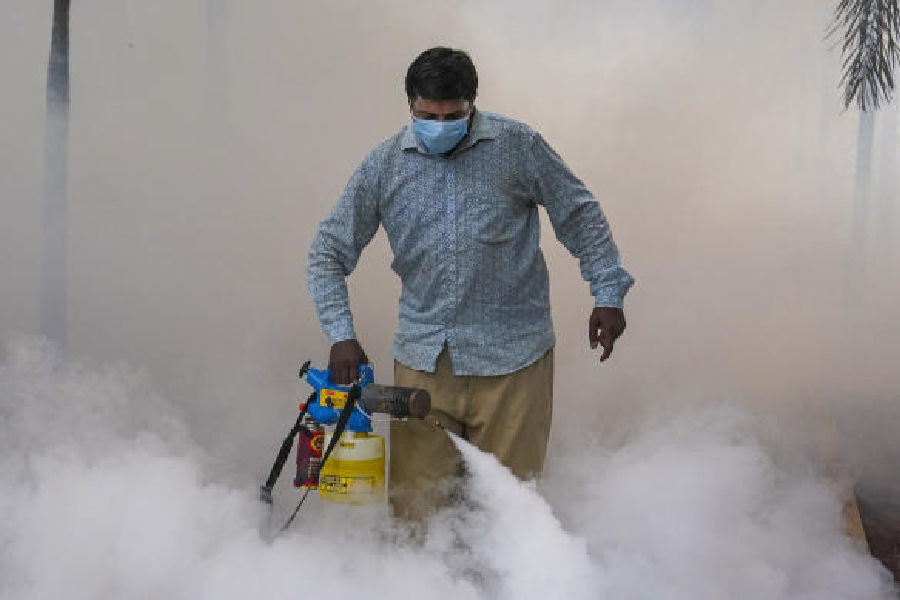The Union health ministry on Wednesday directed states to intensify surveillance for Zika virus infections and screen pregnant women for Zika in affected areas, citing eight cases reported by Maharashtra in recent weeks.
Atul Goel, the director-general of health services, has also asked states to instruct health facilities in affected areas or those catering to cases from affected areas to monitor foetal growth in expecting women who have tested positive for Zika.
Maharashtra had reported six cases in Pune, one in Kolhapur, and one in Sangamner.
The Zika virus spreads through the bites of the Aedes aegypti mosquitoes that also help spread dengue and chikungunya. While Zika infection is mild, causing eye inflammation, rash or fever, it has been associated with microcephaly — reduced head size — in babies born to Zika-infected pregnant women.
India documented its first cases of Zika from Gujarat in 2016. Since then, several states, including Delhi, Karnataka, Kerala, Madhya Pradesh, Maharashtra, Rajasthan and Tamil Nadu, have reported Zika cases.
Although evidence from Brazil and other countries since 2015 has suggested that Zika infections in pregnant women are associated with microcephaly, the health ministry said on Wednesday that there have been no reports of Zika-associated microcephaly in India.
But the ministry has urged states to screen pregnant women in any affected areas or towns for Zika and to instruct all health facilities to identify a nodal officer to keep the premises free of the Aedes mosquito.
The ministry has also asked states to strengthen mosquito surveillance and control across residential areas, workplaces, schools and construction sites as part of efforts to lower the risk of transmission of mosquito-borne infections, including Zika and dengue.
It has also asked states to promote public awareness through messages in social media and other platforms and curb any panic among the community as Zika in most cases does not cause any symptoms or causes mild illness. States have been asked to report any detected case to the Integrated Disease Surveillance Programme and the National Centre for Vector Borne Disease Control, New Delhi.
A study by Brazil researchers earlier this year had found that people who have had Zika infections are at enhanced risk of severe dengue and hospitalisation if they get infected with the dengue virus after Zika.










